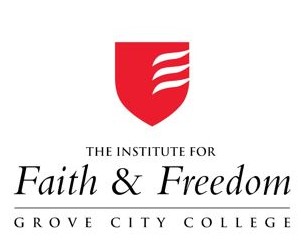Congrats! GOP Has Already Won

With at least a dozen exceedingly close contests in every part of the country, no one knows for certain who will control the US Senate after November 4th. But in the more significant, long-term contest for national dominance it’s safe to declare that the GOP has already won a significant victory.
How is that possible, when it’s still conceivable that Republicans would fall short of gaining the six Senate seats they need in order to triumph in the marquee contest that’s become the near-exclusive focus of pundits and politicos?
The answer is that even if the GOP fails to capture the Senate, Republicans will still gain seats in both houses of Congress, strengthening the conservative message and bargaining position during the president’s final two years.
Even more importantly, the highly competitive nature of so many crucial races, playing out even in deep blue states that Obama carried twice, demonstrates that with the right candidates, Republicans can compete everywhere. The election of 2014 will, if nothing else, underline the bitter collapse of Democratic dreams of ideological realignment, highlighting Barack Obama’s definitive failure to provide his party with the permanent majorities implicitly promised by the 2008 “Hope and Change” campaign.
At this point, barely 10 days before the midterm elections, no reputable, non-partisan prognosticator projects Democratic gains in either House of Congress, or even sees much likelihood of the Democrats holding on to their current numbers. Consensus predictions suggest Republican gains in the House ranging from four seats to fourteen, and in the Senate from four seats to as many as ten.
But the geography counts as even more impressive than the raw numbers, with GOP candidates cruising to all-but-certain victory in five crucial states that Barack Obama carried twice: Ohio, Iowa, Maine, Nevada and New Mexico. In the Buckeye State, Governor John Kasich looks like a 60% winner and may rack up such an impressive percentage of the vote that it would push him into the presidential race. In Iowa, incumbent Governor Terry Branstad enjoys similar popularity in another race that looks more like a coronation than a contest, while State Senator Joni Ernst in the same state looks like a probable winner in the battle for an open seat. Senator Susan Collins, once thought vulnerable in Maine, will score an easy re-election triumph and her surging strength may even allow embattled Governor Paul LePage to beat his Democratic and Independent opponents. In the Southwest, the GOP’s Chicano All-Stars, Governor Susana Martinez of New Mexico and Brian Sandoval of Nevada, will also score landslides in states with big Latino electorates that Democrats won reliably in the last two presidential contests. The five sure-win red states for Republicans amount to 39 electoral votes.
Two more statewide contests show Republican candidates recently pulling away from their Democratic opponents and opening up significant leads: Colorado, where Corey Gardner has expertly exploited Senator Mark Udall’s goofy, gaffe-prone performances and Michigan, where Governor Rick Snyder tops his Democratic challenger by more than 8 points in recent polls. That’s likely GOP winners in two more big states that recently tilted Democratic, for a total of 25 more electoral votes.
Finally, seven more major races in blue states are either precisely tied or within the margin of error, providing neither candidate a clear-cut advantage. These battles include the ugly,slug-fest gubernatorial race in Florida, plus breathlessly close governor’s campaigns in Illinois, Wisconsin and Obama’s native Hawaii. There has also been surprising, largely unheralded GOP momentum in liberal New England. Scott Brown could easily win his Senate race in New Hampshire, while Charlie Baker actually leads in most polls in his bid for the governorship in Massachusetts. Four years ago, Tom Foley came within a few thousand votes of capturing the governor’s mansion in Connecticut and this time seems to be running an even stronger, more promising campaign. In other words, state-wide GOP victories look entirely possible in some of the bluest of blue corners on the map, with these knotted contests unfolding in states worth 85 electoral votes.
The bottom line: Republican candidates are likely or certain winners in six blue states with a combined total of 64 electoral votes, and remain distinctly competitive in seven more states that yield 85 more EV’s, for a grand total of 149 electoral votes. If you added those state totals to the reliably red states and 206 electoral votes actually won by Romney, that would give a future GOP contender 355 votes in the electoral college – a landslide, and 85 electoral votes more than the 270 needed for a clear majority.
Of course, it’s not likely that any Republican presidential nominee would draw to an inside straight and nail down all of the most competitive states, but even if he didn’t— losing every one of the closest races – the 64 votes in states that will yield sure or very likely Republican winners, could still combine with the Romney base totals to assure a majority – with exactly the needed 270 votes in the Electoral College.
And if the Republicans stand a chance in a total of 14 red states, where do Democrats look like plausible winners in states that the GOP has dominated in recent years? They could pull off upsets in Kansas (with an Independent challenging the Republican incumbent, not a Democrat), South Dakota (where another independent candidate causes problems), or Georgia. None of these races counts as anything like a sure score for Dems and, in fact, all of them look increasingly like long-shots.
Democrats will object to this analysis, insisting that off-year elections tell you almost nothing about presidential battles; lower minority turnout makes the electorate in mid-term elections look totally different from the voters who show up in presidential years. Nevertheless, the fact that Republicans can compete effectively in states that the president carried in both 2008 and 2012 suggests Barack Obama failed utterly when it came to transforming his personal popularity into permanent realignment. David Axelrod and Valerie Jarrett fell far short of their daydreams about establishing the sort of reliable, reflexive liberal majority that FDR enjoyed in the 1930’s. If voters in places like Illinois and Massachusetts are willing to look beyond party labels to make local governor’s races exceedingly close, then Republicans with the right approach should be able to compete with similar energy in the run for the White House. The good news from 2014 doesn’t mean Republicans will romp to sure-victory in the upcoming presidential marathon but it does argue that they can make a credible struggle almost everywhere. In 24 months, when the stakes are even higher than they are this year, GOP candidates and operatives face a political and ethical imperative to wage a fierce, fearless and nationwide fight for the White House.
This column appeared first at TruthRevolt.org on October 23, 2014.




















